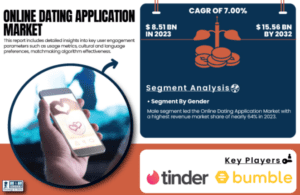The advent of the internet and the proliferation of online dating platforms have revolutionized the way we forge romantic relationships. Yet, they’ve also opened the floodgates to a new form of fraud: online romance scams. The 2023 Online Romance Scams Research Report, conducted through a systematic review of cases from 2000 to 2023, including a qualitative and quantitative analysis of victims’ experiences, unveils the sophisticated tactics used by scammers to exploit those looking for love. This article delves into the report’s key findings, emphasizing the emotional and financial devastation these scams inflict and outlining countermeasures for mitigating the risks associated with online dating.
What Are Online Romance Scams?
Online romance scams are deceptive internet crimes where fraudsters use dating apps, social media platforms, and sites like WhatsApp to prey on individuals seeking romantic relationships. By gaining the trust of their victims, these scammers often request financial assistance, citing fabricated emergencies or compelling stories. The Federal Trade Commission’s data on internet scams reveals a disturbing uptrend in such incidents, with millions lost to online fraudsters annually.
Based on the information found, here’s a table summarizing key findings from the online romance scams research:
| Aspect | Key Findings |
|---|---|
| Prevalence and Financial Impact | Nearly 70,000 consumers were affected by romance scams, incurring losses of $1.3 billion in 2022. This highlights the significant financial impact and widespread nature of these scams |
| Common Tactics Used by Scammers | The most reported lies told by scammers included pretending to need money due to a friend or relative being sick, hurt, or in jail, offering great investment advice, posing as military personnel, or needing help with important deliveries |
| Sextortion | A growing tactic among romance scammers is sextortion, where victims are coerced into sharing explicit photos, which are then used as blackmail. Reports of this form of scam have increased more than eightfold in the past three years, with individuals aged 18-29 being six times more likely to report being targeted by this scam |
| Scams by Numbers | The annual report by Social Catfish revealed that Americans lost $10.3 billion to scams in 2022, with the average loss per victim being $12,859. The report also highlighted that 81% of romance scam victims felt too ashamed to report their experiences to authorities like the FBI or FTC |
| Platform for Scams | Facebook was identified as the most common platform for these scams (32%), followed by Google Hangouts, WhatsApp, and Plenty of Fish (each 16%) |
| Demographics of Victims | The demographics of victims show a worrying trend, with losses by individuals aged 20 and below rising by nearly 2,500% from 2017 to 2022. Senior citizens remain the most victimized demographic, indicating that young people are increasingly being targeted |
These findings highlight the complexity and severity of online romance scams, including the psychological and financial impacts on victims
How to Identify Online Romance Scams?
Red Flags in Online Relationships
Victims of online romance scams often find themselves fully immersed in a tainted love affair, oblivious to the red flags that signal a scam. These include the scammer’s reluctance to engage in video calls or meet in person, their rapid escalation to a romantic relationship, and the request for money or banking information.
Deceptive Tactics Used by Romance Scammers
Scammers create fraudulent profiles on online dating sites, meticulously crafted to match their target’s preferences. Using emotional manipulation, they weave stories of hardship or urgent financial needs, pressuring their victims to send money. Studies on online scams in 2022 highlight the preference for platforms like WhatsApp for these communications, exploiting the personal and seemingly secure nature of instant messaging.
Typical Behavior of Romance Scam Victims
The Federal Bureau of Investigation and consumer protection agencies have noted that victims often disregard warnings from friends or family, choosing instead to believe the scammer’s lies. The financial and emotional strain can lead victims to develop symptoms of depression and anxiety, struggling to come to terms with their victimization.
Fraudster’s Tactics in Online Dating Platforms
Online romance fraudsters systematically review potential victims’ profiles, engaging in targeted interactions to establish a base for their scams. They often manipulate their victims into believing they are the only people who can help them, a tactic that has proven effective in separating individuals from their savings.

What Are the Key Findings of the 2023 Research Report?
Emotional and Financial Impact on Victims
The report reveals the profound emotional and financial toll on victims, with some losing life changing sums to scammers. It calls for enhanced guidance for protecting vulnerable banking customers from modern day romance scams, emphasizing the need for collaboration between law enforcement agencies, financial institutions, and dating platforms.
Countermeasures for Mitigating Online Fraud
Highlighting successful countermeasures, the report underscores the importance of education, awareness campaigns, and the implementation of more stringent verification processes on dating apps. It also suggests the development of new technologies to detect fraudulent activities and protect users.
Financial Loss Statistics
In 2021 alone, victims reported losing over $200 million to romance scams, a stark increase from previous years. The report stresses the importance of federal and state level interventions to curb this growing trend.
2023’s Most Prevalent Online Romance Scam Schemes
The research identified several prevalent schemes, including the use of fake profiles for monetary gain, exploiting social media and dating apps to establish romantic or emotional connections, and the subsequent request for financial assistance under false pretenses with potential victims.
Systematic Review of Online Romance Fraudsters
A systematic review of the behaviors, tactics, and psychological profiles of online romance fraudsters provided insight into their modus operandi, revealing that phone calls and video chats are often avoided.
How Can Users Protect Themselves from Online Romance Fraud and Cybercrime?
Guidelines for safer online dating emphasize the importance of skepticism when interacting with new contacts. Reporting romance scam incidents to Federal Trade Commission or local law enforcement is crucial for preventing further victimization and aiding in capturing these criminals.
Conclusion
The 2023 Online Romance Scams Research Report sheds light on the dark side of digital love, offering invaluable insights into scammers’ tactics and their victims’ plight. While the internet has facilitated new forms of connection, it has also introduced risks that require vigilance, education, and robust protective measures to ensure the search for love does not end in financial and emotional ruin.



